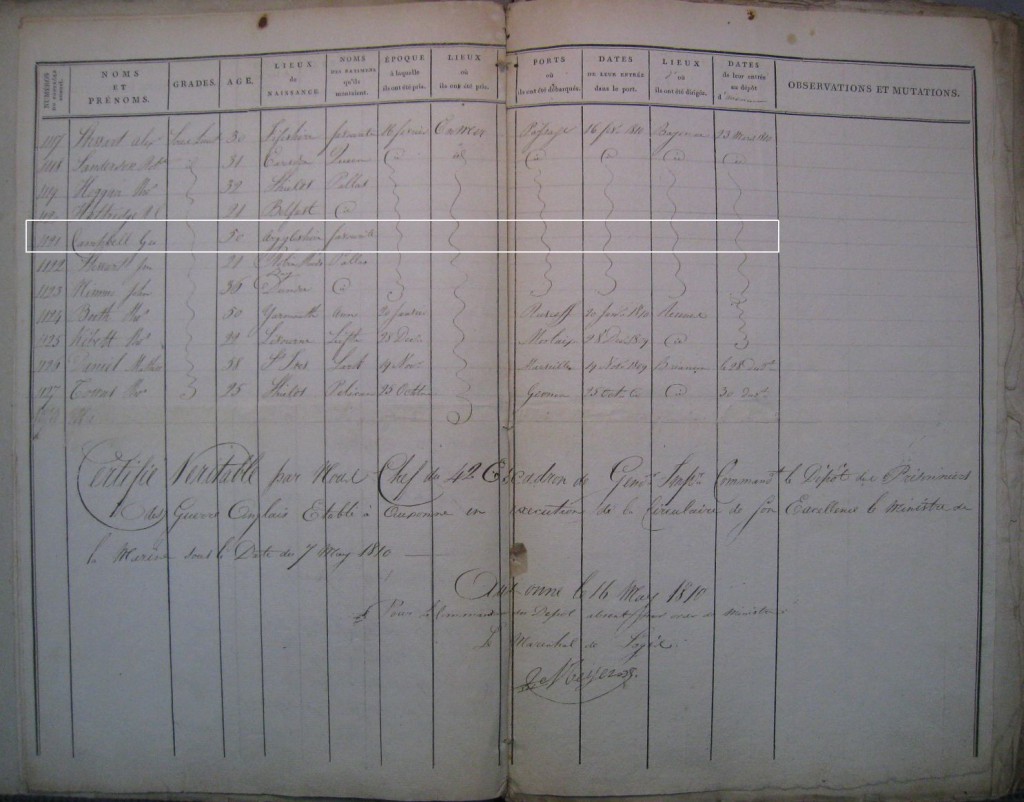A while back Annette and I both had some DNA tests done with Family Tree DNA. So what did our results say and what does it mean to our genealogy.
Arthur’s Results
I had my Y-DNA (all paternal line) and mitochrondrial DNA (mtDNA)(all maternal line) tested (see Wikipedia for a description of these tests). The Y-DNA test was for 37 markers and showed that I, and thus my all paternal line, was in haplogroup G, predicted to be G2a3 (see kit 165074). Haplogroup G is a fairly small group accounting for only 2-3% of the population in Great Britain. Some of the highest concentrations of Gs are found in North Ossetia in the Caucasus Mountains. Unfortunately, I do not have any exact matches in any of the various Y-DNA test result databases.
I also joined the Owen/Owens/Owing(s) DNA project but I am only one of six members who have haplogroup G and none are close. The bulk of the members are hapolgroup R1b which is also the most common group in Europe.
My mtDNA results classified me in haplogroup H (CRS differences at 16519C, 263G, 309.1C and 315.1C) which is the most common group in Europe. For the mtDNA test that I had done (HVR1 & HVR2), the resolution is not that great and I have 1862 matches from all over Europe.
I also sponsored a mtDNA test for a distant cousin whose maternal line ancestor is Ann Cameron, wife of George Campbell. Her results put her in haplogroup I which is a smaller European haplogroup. While she has fewer matches (19), I have not followed up on these since the probability of a common ancestor within the last 300-400 years is fairly small.
So, what does it mean? For my Y-DNA I have arranged with another male line descendant of Arthur Owen to have a test done so we can compare his results with mine. Assuming they match or closely match, we would know the haplotype for Arthur Owen, first Owen to come to PEI, and also know that there is no commonality with any other Owen family, most of which have Welsh origins. This would greatly reduce, but not entirely eliminate, the probability that our Owen family has Welch origins. There were some other Owen families in Devon in the late 1600s/early 1700s so it would be interesting to compare their Y-DNA with ours, but I have not seen any other test results for Owen(s) from Devon. For the mtDNA, until positive comparisons can result in a significant probability of common ancestors within the past several hundred years, I am putting any further testing of myDNA on hold.
Annette’s Results
Annette had her mtDNA tested and it came backs as haplogroup X, a small (2% of population in Europe) group with clusters in Europe, Middle East and North America. Her maternal line ancestor is Radegonde Lambert and her results matched those of other people claiming Radegonde Lambert as their maternal line ancestor. (see Mothers of Acadia Project results). Annette’s kit is 165073. So, while she has not been able to push her maternal line ancestry back any further, the results do confirm her own research.
Annette also had her brother’s Y-DNA tested and it was predicted as haplogroup R1b. The French DNA project (kit 167233 on page 2 on their result page) subsequently ask to have a SNP subclade test done which showed him to be haplogroup R1b1a2a1a1b4 which is positive for SNP L21. This is one of the most common haplogroups in Europe. While there were no exact matches, there were seven matches with genetic distance from 1 to 4 on the 37 markers. As all of these near matches were for other LeBlancs/Whites whose paternal line ancestor was also Daniel LeBlanc (b.1626), the results confirm Annette’s own research.
The tests Annette had done confirms her own research and thus no additional testing is needed.
So what next?
- As mentioned, another male Owen descendant is being tested to confirm my results.
- Since I have not been able to find any test results for the Oulton surname, I would like to see a couple of male line descendants of Charles Oulton (b. ca 1744) tested. Then if other Oultons from Cheshire get tested, we would be able to detemine whether there was a reasonable probability of a common ancestor within a reasonable time period.
- In looking at the Strang(e)/Strong(e)/Lestrange project there are two test results (kit 6611 and 121477) for descendants of Daniel Streing (b.1691) which are in haplogroup I1. However, neither of these kits are for a descendant of Jesse Strang, loyalist to PEI. Since, it is only assumed that Jesse is descended from this Strang family, having a male line descendant tested would help confirm this assumption.
- For Annette, she has been unable to find any test results for her Vienneau ancestors (her mother’s paternal line) and is interested in knowing what their Y-DNA haplogroup would be.
If you have any comments of the above test results, are aware of any other test results matching our desired list above or are willing to contribute to the cost of getting these tests done, please contact us.
